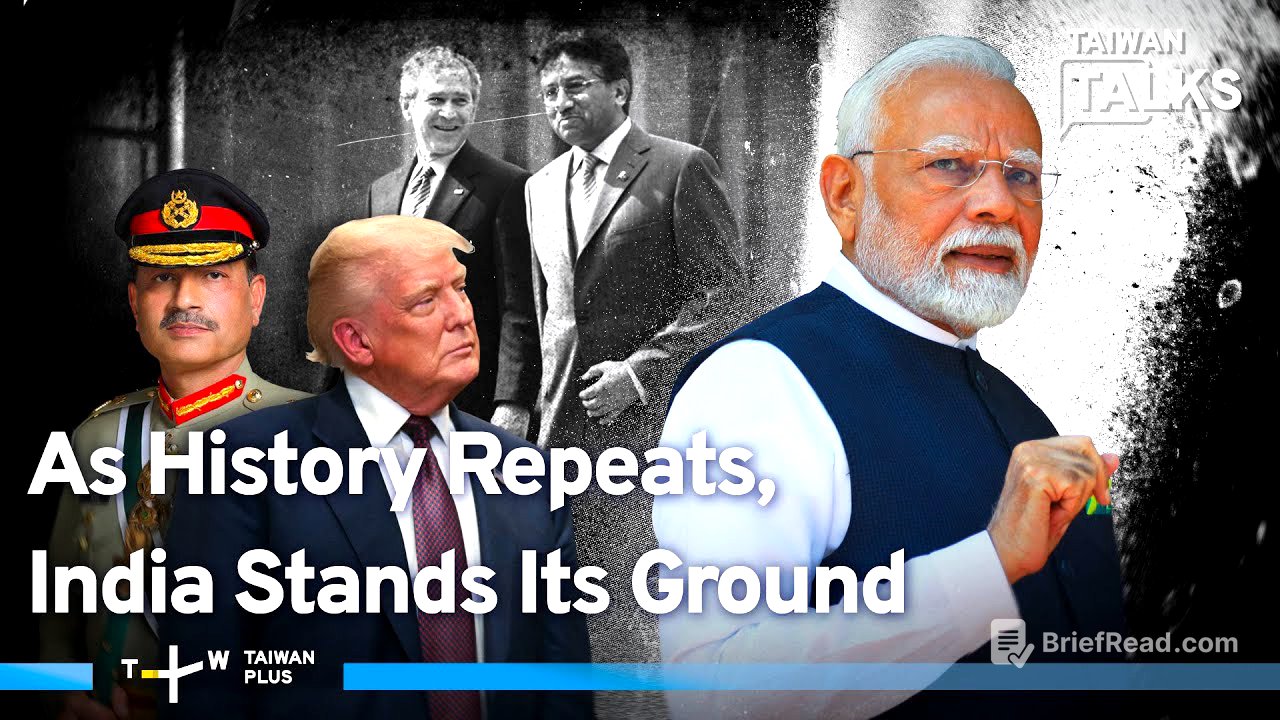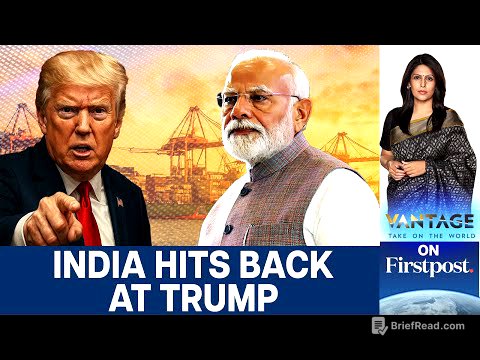TLDR;
This episode of Taiwan Talks explores the complex relationships India has with the US and China, focusing on recent tensions, trade dynamics, and geopolitical strategies. It examines the impact of US tariffs and diplomatic approaches under the Trump administration, the delicate balance in India-China relations, and the growing ties between Taiwan and India. The discussion also touches on China's infrastructure projects and their potential regional implications.
- US-India relations have faced turbulence due to tariff disagreements and differing diplomatic approaches.
- Despite ongoing border disputes and trade deficits, there are signs of thawing economic relations between India and China.
- India and Taiwan's economic and strategic partnership is growing, driven by shared interests in technology and regional stability.
Stresses of India’s U.S., China Ties [0:00]
The discussion begins by addressing a recent terrorist incident in Kashmir and the subsequent military confrontation with Pakistan, which unexpectedly involved the US. Donald Trump's claims of brokering a ceasefire, which Delhi denies, and his outreach to Pakistan's army chief have raised concerns in India. The panel questions the impact of these events on US-India relations, especially when coupled with Trump's tariffs and potential sanctions on Russia, and whether these tensions provide China with an opportunity to gain influence.
India’s Ties with U.S. under Trump [1:50]
The panel discusses the impact of Donald Trump's approach on US-India relations, noting that his claims about brokering a ceasefire have created a toxic environment. While the relationship had been on an upward trajectory for 25 years, Trump's personal style and outreach to Pakistan have caused concern. Despite historical US engagement with the Pakistani military, the Biden administration had largely avoided contact with Pakistan. India's response to terrorism is now more assertive, with a commitment to retaliate against attacks, rather than relying on American intervention. Pakistan's long-standing policy of supporting terrorist groups is also highlighted as a persistent issue.
Are India-China Relations Being Reset? [13:38]
The conversation shifts to India-China relations, noting the resumption of tourist visas and a joint venture in electronics manufacturing. Despite these signs of thawing relations, significant challenges remain, including a disputed border, a large trade deficit, and China's continued support for Pakistan. China's attempts to undermine India's regional position and the historical supply of nuclear weapons to Pakistan are also points of concern. The joint venture between Dixon and Longer is seen as a positive indicator of potential economic cooperation, but foreign investment screening and economic security remain priorities.
Taiwan, India’s Steadily Growing Ties [20:57]
The discussion highlights the growing ties between Taiwan and India, particularly in the technology sector. Taiwanese firms like Foxconn are investing heavily in India, reducing dependence on China and strengthening India's position as a global manufacturing hub. Synergies in renewable energy, semiconductors, AI, 5G technology, and biotechnology are also noted. The panellists express the need to attract more Taiwanese businesses to India, especially in the software and cyber security sectors.
China begins construction of Tibet mega-dam [23:20]
The episode concludes by addressing China's construction of a mega-dam in Tibet, which has raised concerns in Bangladesh and India about potential disruptions to water flow downstream. The India-Taiwan relationship is seen as resilient, driven by economic opportunities and a shared commitment to a rules-based international order. India views China's assertive behaviour and potential use of force against Taiwan as a significant concern, with potentially disastrous effects on regional politics.









